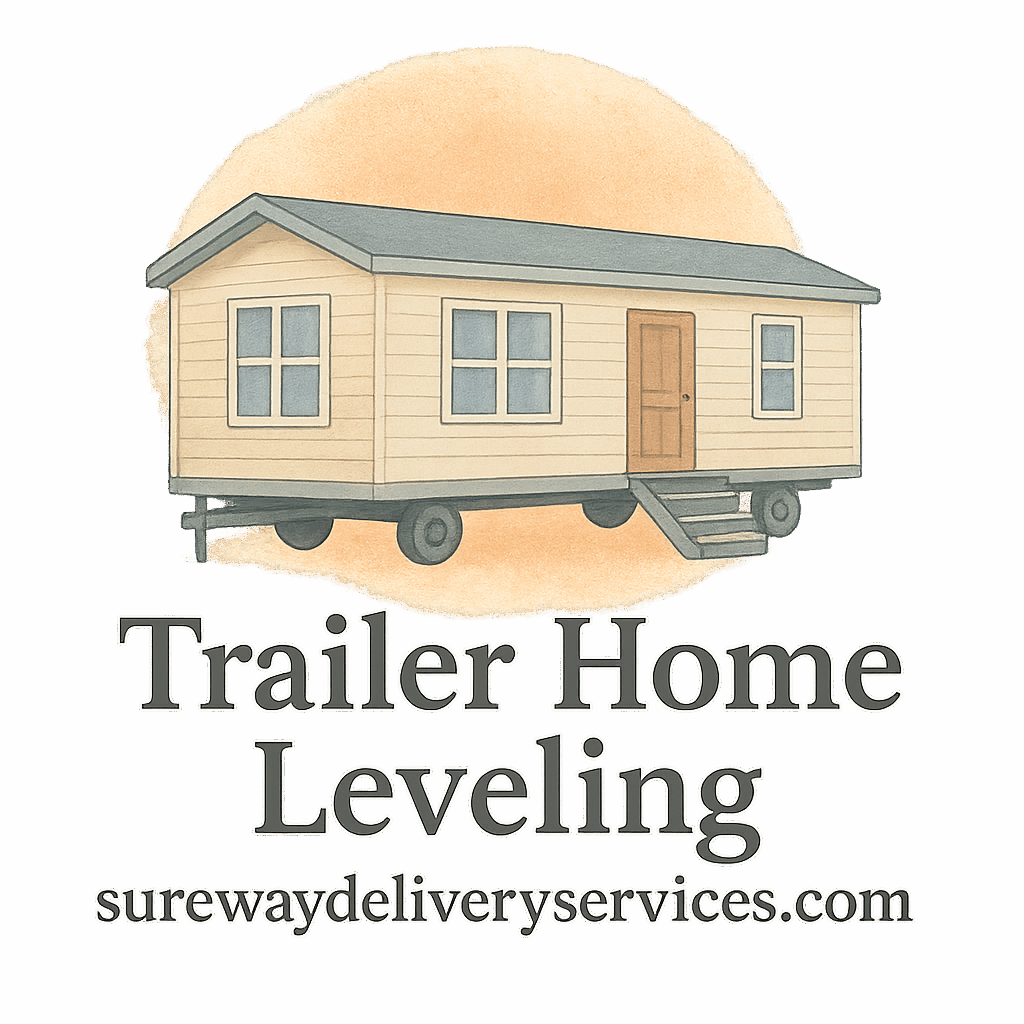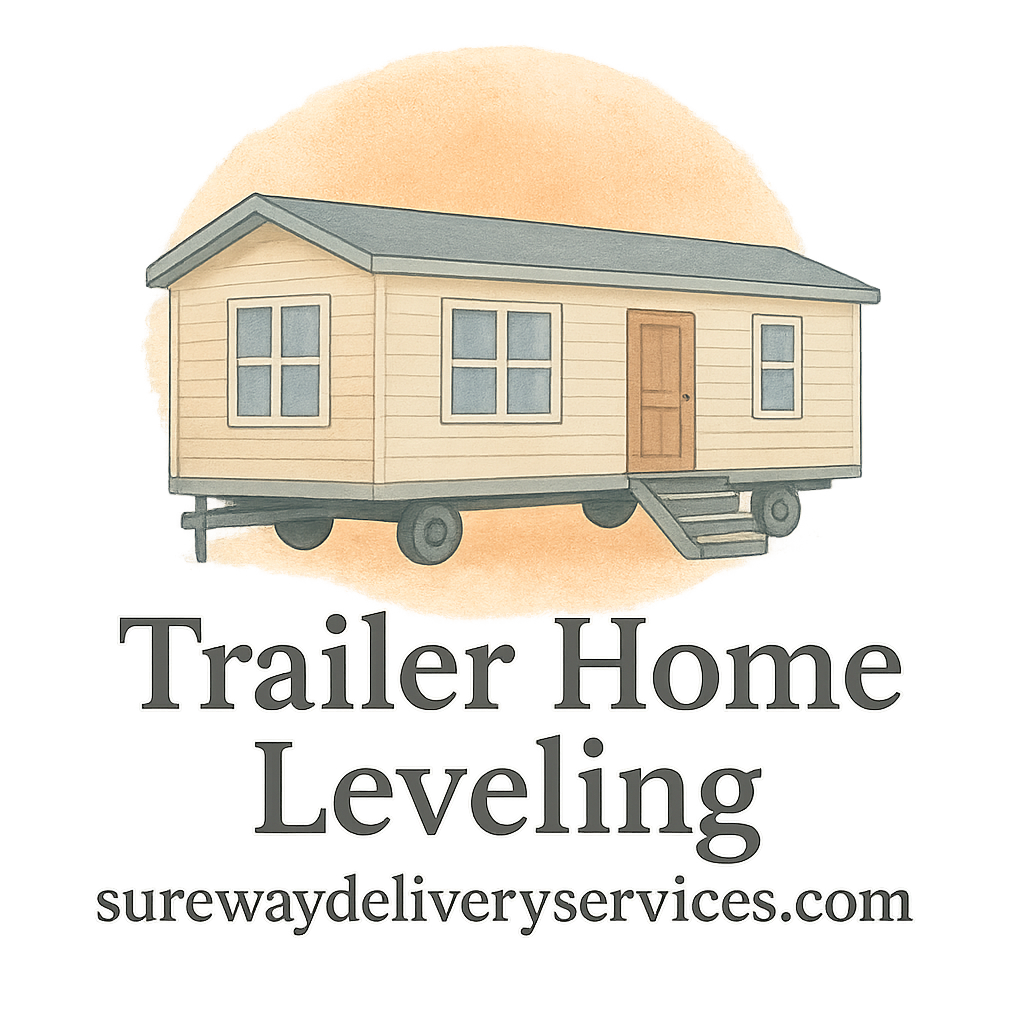Introduction
So, you’ve finally decided to take the leap and level your trailer home. Good call—nothing screams “peace of mind” like a steady floor and doors that close without a wrestling match. But hold on. Before you start dreaming of perfectly aligned countertops and creak-free walks, let’s talk about something no one really wants to hear: unexpected expenses.
Yep. They’re real. They sneak up on homeowners like that extra charge on your restaurant bill you didn’t see coming. To help you stay ahead of the budget-busting curve, we’ve rounded up the 7 most common unexpected expenses during home leveling projects—and how you can prepare for them.
For a primer on what home leveling actually involves, check out this detailed guide on leveling basics.
1. Soil Testing and Ground Preparation
Why It’s Often Overlooked
Most folks think leveling a home is all about what happens under the trailer. But it turns out, what’s under the ground matters just as much. Soil conditions—like moisture content, clay density, or sand shifting—can drastically impact how well your home stays level.
How This Affects the Budget
If the soil under your home isn’t stable, it might need reinforcement. That means bringing in gravel, doing some minor excavation, or even compacting the soil—all of which costs money. Some companies charge hundreds just for soil testing alone.
Pro tip: Before hiring, ask your provider if ground prep is included in the service package.
2. Permits and Local Regulations
Hidden Bureaucracy Costs
Ah, paperwork—the joy of every homeowner’s journey. Depending on where you live, your home leveling project might need permits. And they’re not always cheap. In some cities or counties, you’ll have to shell out $200–$500 or more just for the right to lift your house an inch.
Varying Permit Requirements by Location
Some areas also require site inspections or even engineered drawings. If you’re doing this on your own, that’s another curveball—and potentially another unexpected cost.
You can keep track of requirements by using a planning checklist or consulting a local professional from our hiring guide.
3. Damage to Utilities (Plumbing, Electrical, HVAC)
When Things Go Sideways
During leveling, your home shifts—sometimes just enough to crack a pipe or disconnect a wire. It’s not common, but when it happens, repairs to plumbing, electrical, or HVAC systems can quickly run into the hundreds (if not thousands) of dollars.
Preventing Utility-Related Surprises
Be proactive. Before leveling, have your utility systems inspected. A quick check could save you a big repair bill. You can find tips on regular maintenance and inspection to reduce risk.

4. Unexpected Structural Repairs
Cracks, Rot, and Weak Points
Leveling often exposes hidden damage in your trailer’s frame or subfloor. You might discover wood rot, termite damage, or even corroded steel supports—issues you’ll need to fix immediately to avoid long-term risks.
Why Pre-Inspection Matters
Investing in a thorough pre-leveling inspection pays off. Many homeowners regret skipping this step after discovering post-leveling surprises. Learn more in our section on inspection essentials.
5. Upgrading Old or Ineffective Support Systems
Jacks, Beams, and More
If your trailer still uses outdated or undersized jacks, don’t be surprised if the crew tells you they won’t do the job unless you upgrade. Modern jacks offer better safety and stability, but they’re also not free.
Explore our page on jack upgrades and how they improve performance.
Safety and Longevity Upgrades
You may also need to replace crossbeams, pads, or tie-downs, especially if your trailer’s been sitting for decades. These add to the cost but significantly increase your trailer’s structural integrity.
6. Temporary Relocation or Accommodation
When You Can’t Stay Put
Some home leveling jobs require you to vacate the premises—at least temporarily. This often surprises first-time homeowners. Between the noise, shaking, and safety concerns, it might be best to stay in a hotel or Airbnb.
How to Budget for This Hassle
Even a two-night stay can throw off your budget if you’re not prepared. Plan ahead by checking local options or asking your contractor if relocation is likely.
For real advice from people who’ve been there, read some customer reviews and stories on our blog.
7. Additional Labor Costs and Time Overruns
The Clock Is Ticking—And Billing
A project quoted at 2 days can stretch into 5. And yes—time is money. If your crew charges by the hour or adds extra labor days to your invoice, you could see your budget balloon fast.
When DIY Turns into Hire-a-Pro
Some homeowners start with a DIY mindset and realize midway they’re in over their heads. At that point, hiring help may cost more than it would have if you’d just done it from the start.
See our section on cost tips to better understand budgeting traps.
Real Home Leveling Experiences from Homeowners
A Peek at Customer Reviews and Success Stories
We’ve compiled inspiring success stories from folks who navigated these curveballs like pros. You’ll also find a few cautionary tales—because it’s better to learn from someone else’s mistake than your own.
How to Minimize Surprises in Your Home Leveling Project
Maintenance, Inspection, and Checklists
Want to avoid unexpected costs? Keep a regular maintenance checklist and schedule annual inspections. These simple habits help you spot issues before they become expensive surprises.
Knowing When to Call the Pros
If leveling feels too big to DIY, don’t sweat it. Visit our service hiring guide to find qualified pros who know how to keep costs in check while doing the job right.
Conclusion
Home leveling is essential for safety, comfort, and the long-term health of your trailer. But as with any big project, the devil is in the details—and in this case, the unexpected expenses.
From soil surprises to busted pipes and the occasional hotel bill, it’s smart to build a buffer into your budget and go in with eyes wide open. With regular trailer maintenance, smart inspections, and help from trusted pros, you can smooth out your leveling journey—and your floors too.
Want to go deeper? Start with our introductory guide to trailer home leveling or explore all the trailer leveling tips in one place.
FAQs
1. How much should I budget for unexpected expenses during home leveling?
It’s wise to set aside 10–20% of your total budget for unexpected costs.
2. Can I do home leveling myself to save money?
You can, but DIY projects often run into hidden problems. Read more about tools you’ll need before diving in.
3. What’s the most common surprise during trailer leveling?
Utility damage—especially plumbing—is the most common and costly surprise.
4. Do all areas require permits for leveling projects?
Not all, but many do. Check your local laws or our permit guide for clarity.
5. Are all leveling services priced the same?
Nope. Many offer different price tiers or service options, so shop smart.
6. What’s the best time of year to level a trailer home?
Dry months are best—less ground movement, fewer delays.
7. How can I tell if my trailer needs leveling?
Slanted floors, cracked walls, or hard-to-close doors are common signs it’s time for action.


